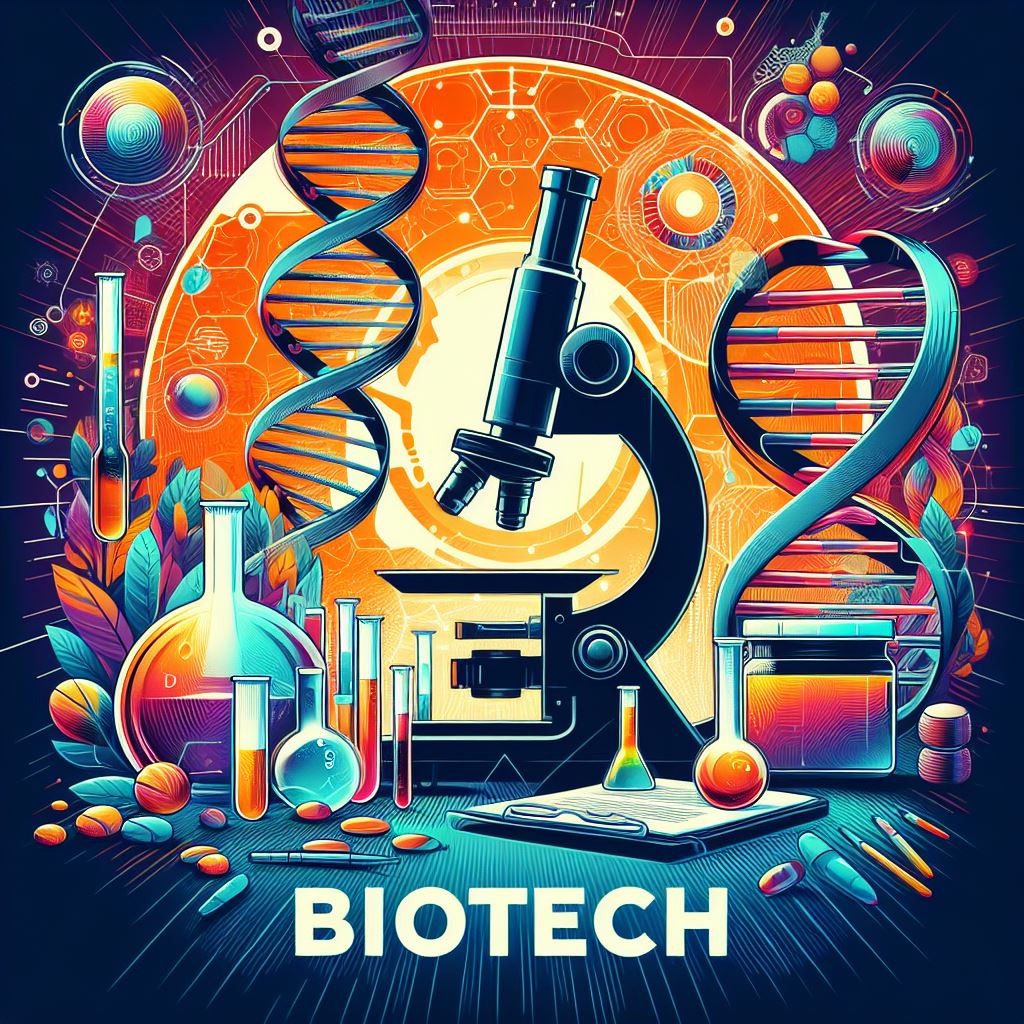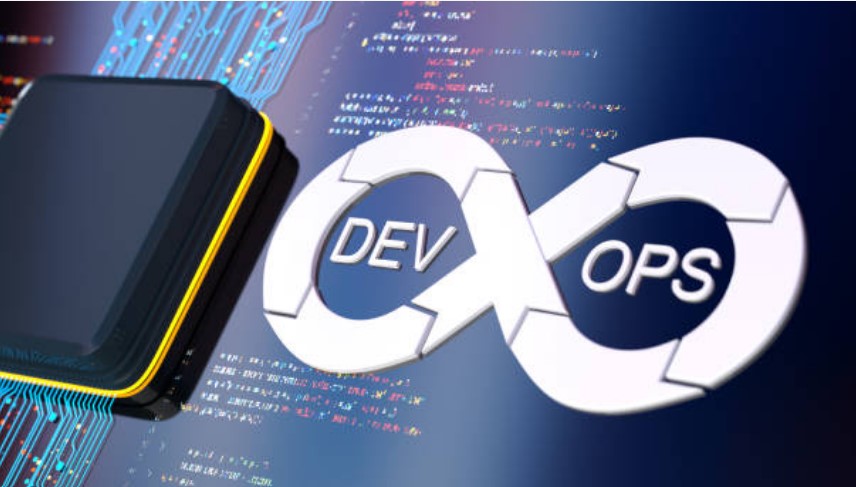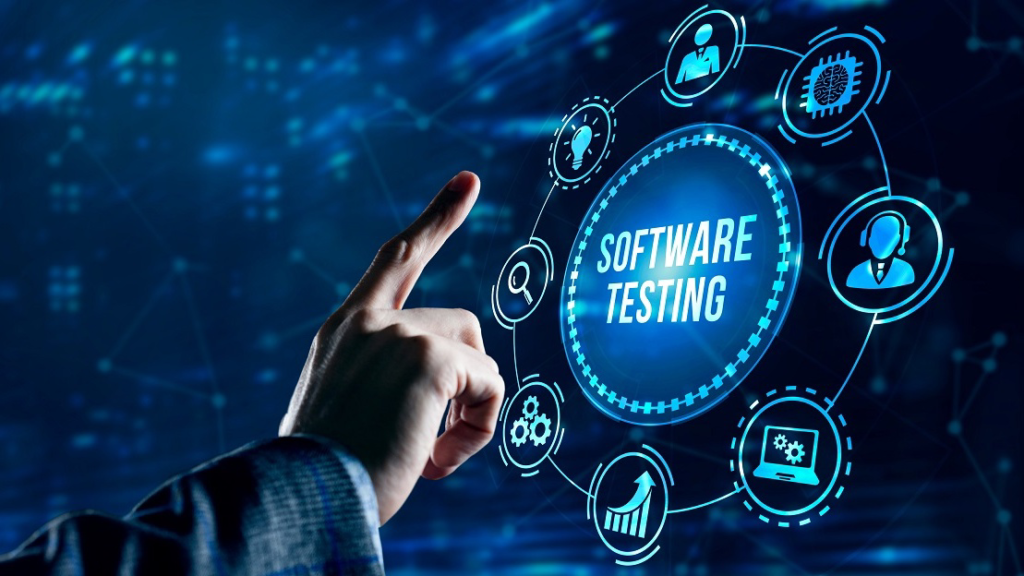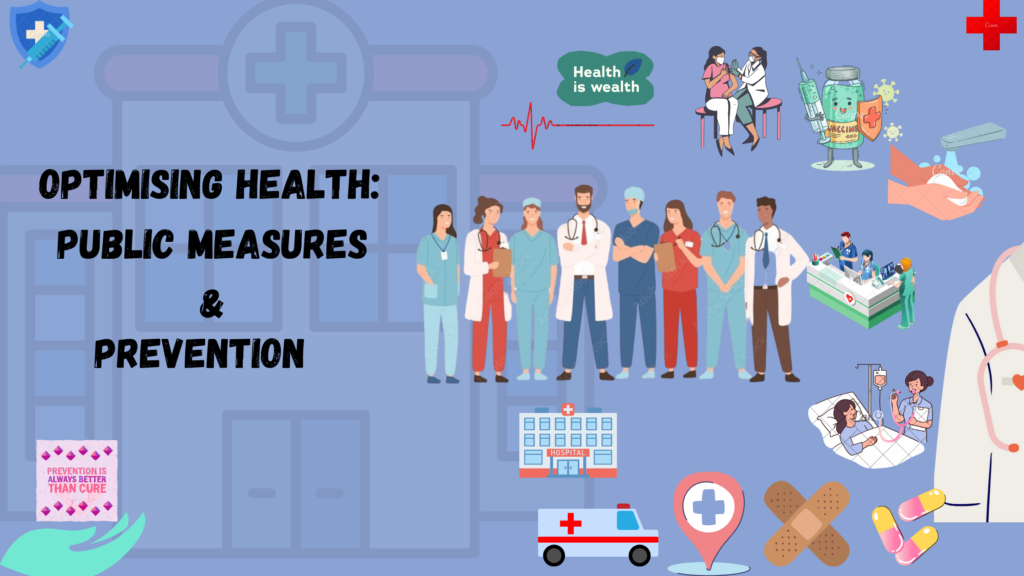The word Biotechnologist is derived from Biotechnology. In simple words Biotechnology refers to the application of biological knowledge and techniques to address problems and develop products and technology that improve our lives.
Did you know that human beings have been harnessing biological process for thousands of years?
Making bread, alcoholic beverages, cheese and preserving dairy products using micro-organisms is an example of Biotechnology.
Why should you become a biotechnologist?
Take a look at the pointer’s below to decide if biotechnologist is a career for you:
- Biology and how living things work fascinates you
- Working in the lab excites you
- You welcome challenges
- You love team work and collaboration
- You want to bring about a positive change in the world
If your response to the above is “Yes” then go ahead and read-on.
Education requirements
Education is important to lay down the foundation and a stepping stone towards becoming a biotechnologist.
To start a career, in biotechnology having a strong educational background is essential. Getting a degree in biotechnology, biochemistry, molecular biology or similar fields sets the stage for success. Moreover, taking part in internships conducting research and obtaining certifications can boost your resume and open a plethora of opportunities.
Below are list of universities that offer programs in Biotechnology in India and Abroad. Please note this is not an exhaustive list and you can expore these links:
- https://collegedunia.com/study-abroad/biotechnology-universities
- https://www.collegedekhoabroad.com/universities-bachelors-in-biotechnology/
Universities in India:
| University | Location |
|---|---|
| Banaras Hindu University | Uttar Pradesh, Varanasi |
| All India Institute of Medical Sciences | Delhi, Haryana |
| University of Delhi | Delhi, Haryana |
| Indian Institute of Technology Delhi | Delhi, Haryana |
| Annamalai University | Tamil Nadu, Chidambaram |
| Post Graduate Institute of Medical Education and Research | Punjab, Chandigarh |
| Jamia Hamdard University | Delhi, Haryana |
| Manipal Academy of Higher Education | Karnataka, Manipal |
| Panjab University | Punjab, Chandigarh |
| Indian Institute of Technology Roorkee | Uttarakhand, Roorkee |
| Indian Institute of Technology Kharagpur | West Bengal, Kharagpur |
| Indian Agricultural Research Institute | Haryana, Delhi |
| University of Madras | Tamil Nadu, Chennai |
| Jadavpur University | West Bengal, Kolkata |
| VIT University | Tamil Nadu, Vellore |
Universities Abroad:
| University | Location |
|---|---|
| University of Oxford | England, Oxford |
| Stanford University | California, USA |
| Harvard University | Massachusetts, USA |
| University of Cambridge | England, Cambridge |
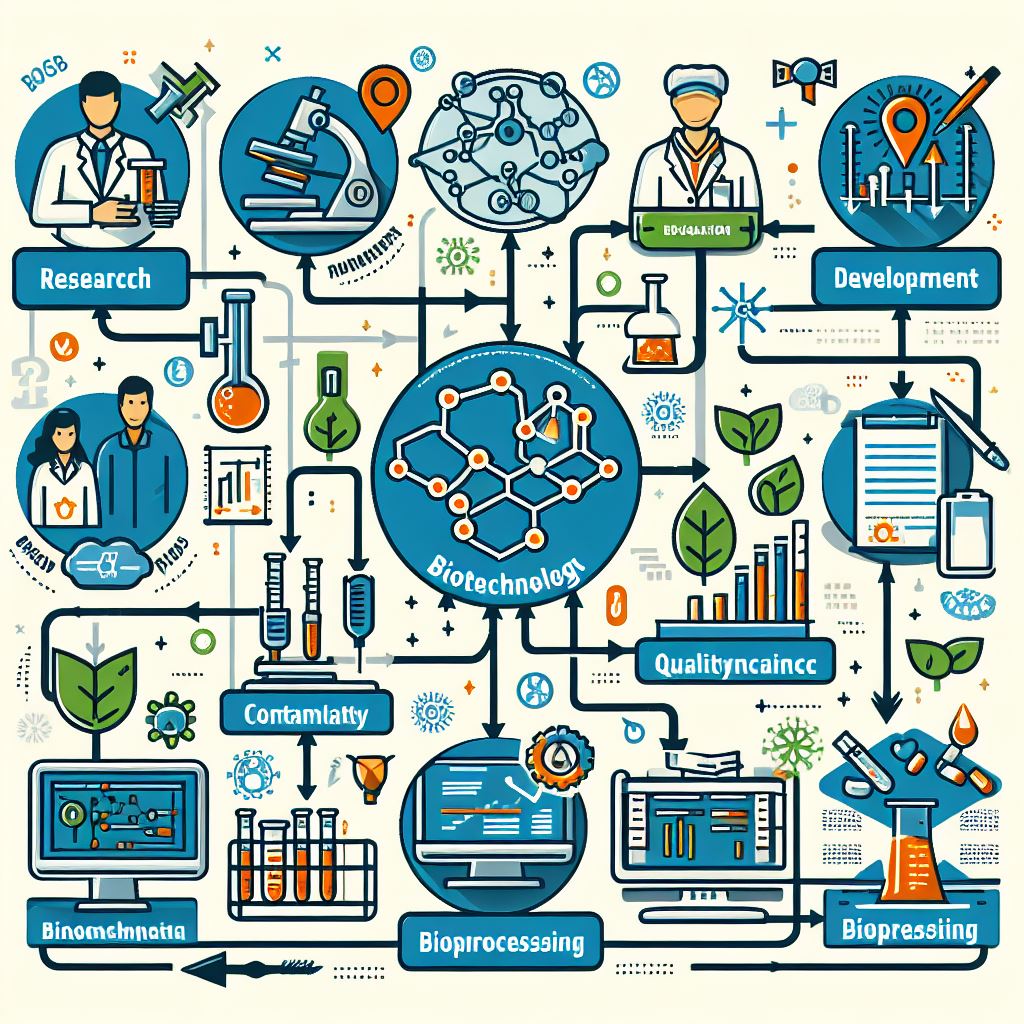
Career path in Biotechnology
During your education and internship, you will come across different career paths and you can choose one of them listed below:
- Research and Development: You can join the research and development department of organizations listed in the table below. By joining the research and development department, you will be involved in developing new drugs, therapies or agricultural products. You will also be involved in analysing data and optimize outcomes based on the data analysis.
- Quality control and Assurance: You will be responsible for maintain the quality of the product and ensure that they meet the regulatory requirements.
- Bioinformatics: You will be utilizing computational tools and algorithms to analyze biological data. Knowing and understanding data science techniques is critical to extract meaningful insights from complex data sets.
- Bioprocessing and Manufacturing: You will be responsible for designing and optimizing manufacturing processes for efficiency and yield. You will be scaling production of biopharmaceuticals, enzymes and biofuels.
List of companies that hire Biotechnologies in India and abroad:
Table
| Company | Location |
|---|---|
| India | |
| Biocon | India |
| Serum Institute of India | India |
| Panacea Biotech | India |
| Mahyco Monsanto Biotech | India |
| Abroad | |
| Ranbaxy | Abroad |
| Cipla | Abroad |
| Dr. Reddy’s | Abroad |
| Bharat Biotech | Abroad |
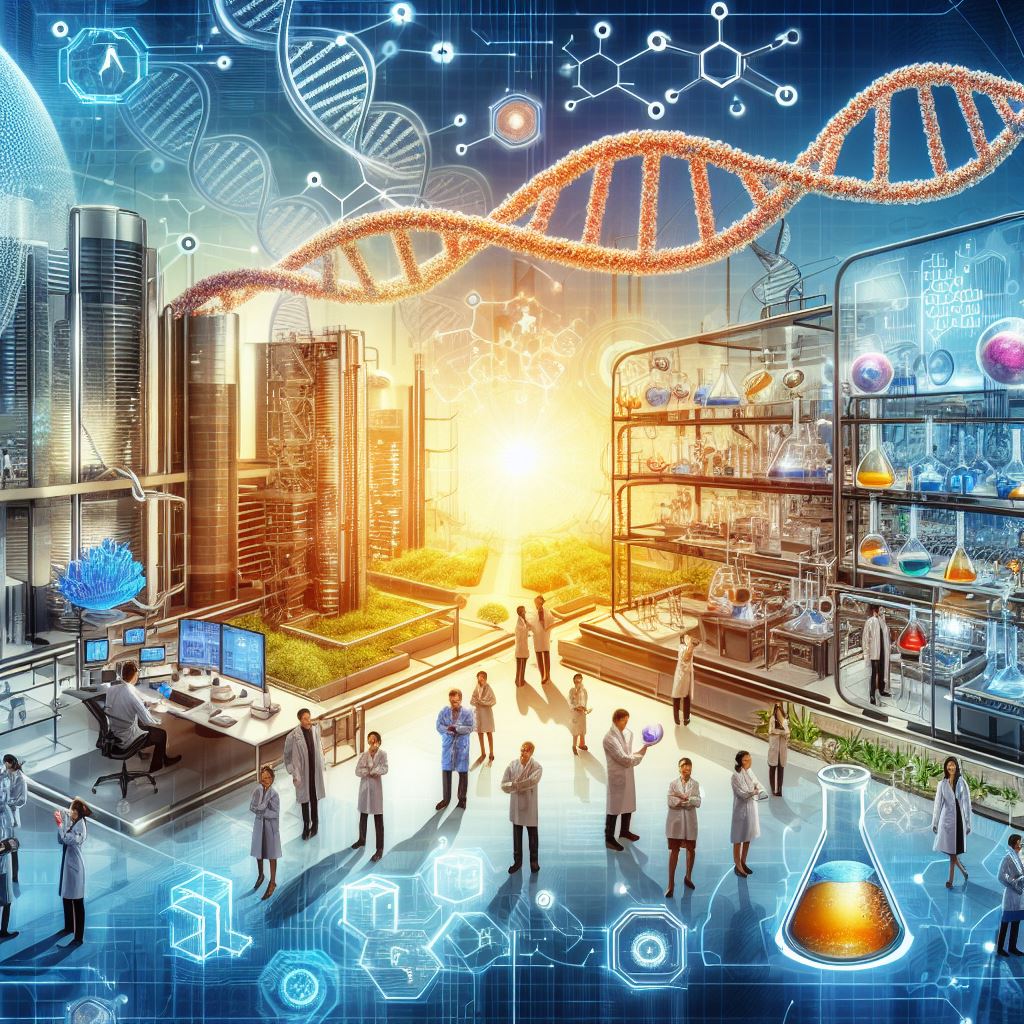
Future of Biotechnology
In the future, biotechnology will be revolutionizing various sectors addressing global challenges. Let’s take a look at some of them:
Disease eradication: Tools like CRISPR are and will continue to make significant strides in tackling genetic disorders and there is a potential of diseases being eliminated.
Medicine personalization: Personalizing treatments to align with the individual’s genetic make-up is an advancement in genetic testing.
Tissue regeneration: 3D bioprinting technology holds immense potential in organ replacement, transplant and injury repair.
Sustainability: Biodegradable materials and biofuels derived from renewable resources are being developed to combat climate change and promote eco-friendly practices.
Food and Agriculture: Engineering crops resistant to harsh weather conditions and developing alternative food sources like lab-grown meat can address global food security concerns.
Bioengineering: Combining engineering principles with biological knowledge will lead to the creation of innovative devices and materials with medical and environmental applications.
Artificial Intelligence (AI): AI will play a crucial role in analyzing vast amounts of biological data, facilitating drug discovery, and even designing new biomolecules with specific properties.
The potential of biotechnology, in the future looks very hopeful. It provides answers to issues faced by humanity and paves the way, for revolutionary breakthroughs that will impact our world.
References:
Here are some resources to explore further:
- The National Institutes of Health (NIH): https://www.nih.gov/
- The Future of Humanity Institute, Oxford University: https://www.fhi.ox.ac.uk/
- World Economic Forum – The future is bright, the future is biotechnology: https://www.ncbi.nlm.nih.gov/pmc/articles/PMC10146504/
How is AI impacting the field of Biotechnology?
Artificial Intelligence (AI) is significantly impacting the field of biotechnology, revolutionizing research, drug discovery, and patient care. Here are some ways AI is making a difference:
- Drug Discovery and Development:
- AI-driven drug discovery accelerates the process by predicting potential drug candidates.
- Machine learning models analyze vast datasets to identify novel drug targets, predict drug interactions, and optimize molecular structures.
- Researchers can explore a broader range of possibilities, leading to more efficient drug development12.
- Personalized Medicine:
- AI analyzes patient data, including genomics, proteomics, and clinical records, to tailor treatments.
- Predictive models help identify optimal drug dosages and potential adverse effects for individual patients.
- Personalized medicine improves patient outcomes and reduces adverse reactions2.
- Image Analysis and Diagnostics:
- AI algorithms interpret medical images (such as X-rays, MRIs, and pathology slides) with high accuracy.
- Early disease detection, tumor identification, and treatment planning benefit from AI-powered diagnostics3.
- Bioprocess Optimization:
- AI optimizes biomanufacturing processes, ensuring consistent product quality.
- It predicts optimal fermentation conditions, protein expression, and yield improvement2.
- Gene Editing and CRISPR:
- AI assists in designing guide RNAs for CRISPR-based gene editing.
- It predicts off-target effects and enhances precision in genome editing2.
- Drug Repurposing:
- AI screens existing drugs for new therapeutic uses.
- By analyzing molecular interactions, it identifies potential candidates for repurposing2.
- Biological Data Analysis:
- AI handles large-scale omics data (genomics, transcriptomics, proteomics) efficiently.
- It identifies biomarkers, pathways, and potential drug targets2.
- Automation and Efficiency:
- AI automates repetitive tasks, freeing scientists to focus on creative aspects.
- Lab automation, data extraction, and literature mining benefit from AI2.
In summary, AI is transforming biotechnology by enhancing research, drug discovery, and patient care, ultimately improving global health outcomes.
Take aways!
If you are considering to choose the path towards becoming a Biotechnologist, here are some valuable recommendations
- Start with developing a strong foundation in education and technical skills.
- Diversify your career path by exploring roles in research and development, clinical testing, manufacturing and product management.
- Practical experience is good to strengthen your portfolio. To do this, explore internship and connect with professionals in this field.
- Attend conferences and workshops
- Be curious and adapt – never know when life will throw a curve ball at you.
- Be a life long learner
- Master transferrable skills like communication, teamwork, problem solving.
Lastly, I would say if science were your passion; then becoming a Biotechnologist is one of the career options for you.
If you would like to explore other career choices, click here.
FAQs
What does a biotechnologist do?
- Biotechnologists apply their knowledge of biology and technology to research, develop, and improve products and processes in various fields like medicine, agriculture, and environmental science.
2. What are the different areas of specialization for a biotechnologist?
- Specializations include:
- Biomedicine: Drug discovery, gene therapy, vaccine development.
- Agriculture: Genetically modified crops, biopesticides, biofertilizers.
- Industrial Biotechnology: Biofuels, bioplastics, bioremediation.
3. What qualifications do I need to become a biotechnologist?
- A bachelor’s degree in biotechnology, biology, chemistry, or a related field is typically required. Master’s degrees and Ph.D.s are sought for research and advanced positions.
4. What skills are essential for a successful biotechnologist?
- Strong foundation in biology, chemistry, and laboratory techniques.
- Excellent analytical and problem-solving skills.
- Attention to detail and accuracy.
- Effective communication and collaboration skills.
5. What is the job outlook for biotechnologists?
- The job outlook for biotechnologists is expected to be much faster than average according to the U.S. Bureau of Labor Statistics, driven by the growing demand for innovation in various sectors.
6. What is the average salary of a biotechnologist?
- The average salary can vary depending on experience, specialization, and location. Salary ranges can be found on websites like https://www.indeed.com/ or https://www.glassdoor.com/index.htm.
7. What are the career paths for a biotechnologist?
- Research Scientist, Lab Technician, Product Development Specialist, Quality Control Analyst, Science Policy Analyst, Patent Attorney (with additional legal qualifications).
8. Is biotechnology a good career choice?
- If you’re passionate about science, innovation, and making a positive impact, then biotechnology offers a stimulating and rewarding career path.
9. What are the challenges of being a biotechnologist?
- Working in a fast-paced environment, keeping up with rapid advancements in the field, and navigating potential ethical considerations.
10. Where can I find more information about a career in biotechnology?
- Resources like the Biotechnology Industry Organization (BIO: https://www.bio.org/), American Society for Microbiology (ASM: https://asm.org/), and the U.S. Bureau of Labor Statistics (https://www.bls.gov/) offer valuable insights.

